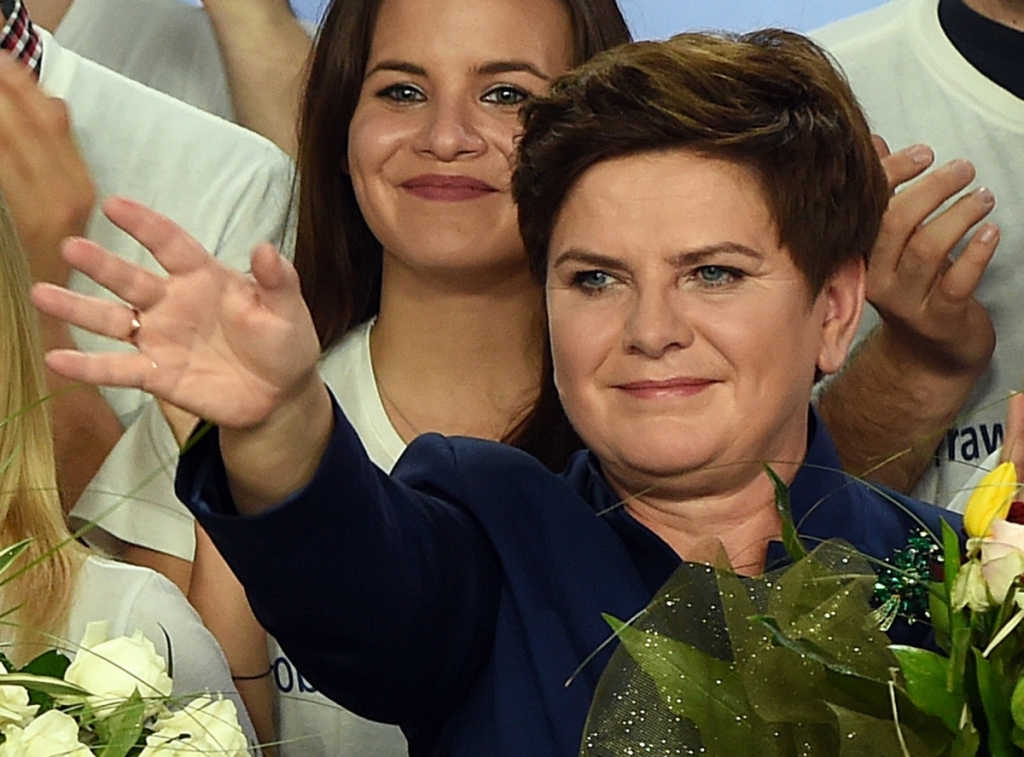-
Tips for becoming a good boxer - November 6, 2020
-
7 expert tips for making your hens night a memorable one - November 6, 2020
-
5 reasons to host your Christmas party on a cruise boat - November 6, 2020
-
What to do when you’re charged with a crime - November 6, 2020
-
Should you get one or multiple dogs? Here’s all you need to know - November 3, 2020
-
A Guide: How to Build Your Very Own Magic Mirror - February 14, 2019
-
Our Top Inspirational Baseball Stars - November 24, 2018
-
Five Tech Tools That Will Help You Turn Your Blog into a Business - November 24, 2018
-
How to Indulge on Vacation without Expanding Your Waist - November 9, 2018
-
5 Strategies for Businesses to Appeal to Today’s Increasingly Mobile-Crazed Customers - November 9, 2018
Polish Elections: PiS to Have Sejm Majority
Poland’s right-wing Law and Justice Party has won parliamentary elections with an absolute majority in weekend elections. The Law and Justice party won 39 percent of the vote, enough to govern alone without forming a coalition.
Advertisement
Four other parties won seats in parliament: Civic Platform, the pro-market party that governed Poland for the last eight years, won 138 seats; a group led by anti-establishment rock star Pawel Kukiz got 42; Modern, a party led by a pro-business economist, Ryszard Petru, got 28 seats, and the agrarian Polish Peoples Party won 16.
Jaroslaw Kaczynski, the leader of the conservative opposition Law and Justice party casts his ballot in Polands general elections in Warsaw, Poland on Sunday, October 25, 2015. The appointment in September 2014 of the then Polish prime minister and Civic Platform leader Donald Tusk as President of the European Council was presented as the crowning achievement of the previous government’s strategy of projecting Poland as a “model” European state at the forefront of the EU integration project. Ten-years-ago it was believed that Law and Justice voters were elderly people who didn’t have a university education and were from rural areas.
When the party ran the government from 2005-2007 it liked to nurture historical grievances against Germany, which inflicted massive suffering on Poland during World War II. But Law & Justice is more hardline and less diplomatic, especially since the 2010 plane crash in which Mr. Kaczyński’s twin brother, Lech, died along with dozens of government officials.
Kaczynski is expected to call the shots and pick his battles in the EU, even though he has nominated the soft-spoken Szydlo as prime minister and may put conciliatory figures with European experience into the foreign and defence ministries.
The PiS has an ambitious agenda to cut taxes for small and medium-sized businesses, lower the pension age after Civic Platform raised it, increase family benefits, lower taxes on families and impose taxes on banks and large foreign-owned supermarkets.
Former prime minister Jaroslaw Kaczynski’s party has never been overtly anti-European and actually backed Poland’s 2004 EU entry, Zaborowski of the Center for European Policy Analysis (CEPA), a USA think tank, pointed out.
The refugee crisis on the continent has played an important role in the election campaign.
Lucas Miszczyk, a 48-year-old sound technician, took the opposite view, saying he felt Law and Justice was the only party that has Polish interests at heart.
In this respect the new government will be in tune with Polish public opinion: while there is still overwhelming support for European Union membership, most Poles also oppose their country joining the Eurozone.
However, in a sign of its widening support, Polish media reported that a growing number of educated Poles now support the party.
“We will exert law but there will be no taking of revenge”, Kaczynski said after polls closed Sunday night. Unfortunately, this leaves the new government with a better chance of carrying out its program. “For example, in relation to the refugee crisis, Russian Federation and Ukraine”.
Advertisement
Countries like Poland should conduct conservative monetary policy, focused on current targets, the president’s economic advisor Zdzislaw Sokal told daily Puls Biznesu, adding that a discussion on the central bank’s mandate change is possible in the future.





























